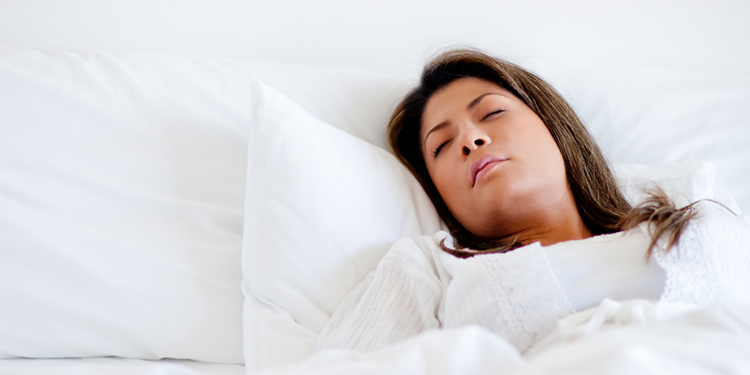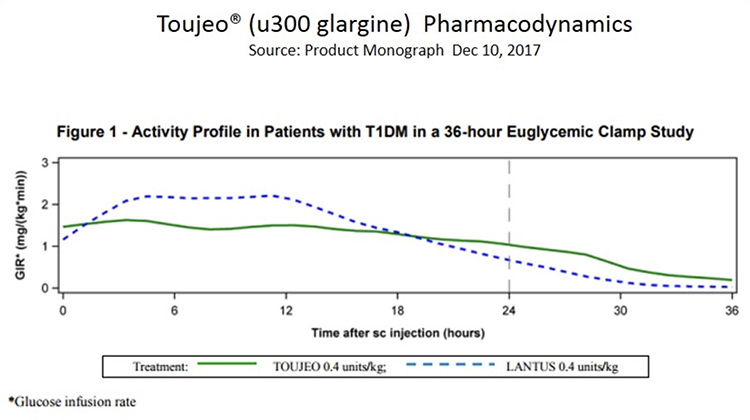
Ever wake up to high morning blood sugar that you can't seem to explain? Here are three common causes of high morning blood sugar and what you can do about it.
We all know that diabetes is a balancing act. There's a small blood sugar target we all aim for. In order to hit that bullseye, we have a lot of work to do. When we are awake for the highs and lows it can be much easier to identify and manage the causes. But, when we are sleeping, it is much more difficult to do so. If you are waking up with high morning blood sugar levels, here are three possible reasons why.
Dawn Phenomenon
According to the American Diabetes Association, everybody experiences dawn phenomenon whether they have diabetes or not. The difference is that, if you have diabetes, your body's ability to deal with the dawn effect is reduced. Dawn Phenomenon normally occurs in the early morning hours between 4 am and 8 am (around dawn). Hormones in your body surge and cause your liver to produce more glucose. This is nature's way of making sure there is enough present when you wake up in the morning, since glucose is the body's primary energy source. With little or no insulin at all being produced during that time, insulin levels aren't enough to combat this surge of glucose, so blood glucose levels increase.
Somogyi Effect
Somogyi effect will manifest as high morning blood sugar but from a very different cause than dawn phenomenon. Also known as the rebound effect, Somogyi effect occurs when blood sugar drops following a hypoglycemic (low blood sugar level) episode, when your body releases natural glucagon in an attempt to correct dangerous lower blood sugar levels. When this cause and effect occurs in the middle of the night while you sleep, your blood sugar reading may be high by morning.
Controllable Circumstances
There is a third round of possibilities. Examine your evening routine and see if there is something you've overlooked that may need adjusting to avoid morning high blood sugar.
Is it something you ate? Unless you measure out exact portions, maybe you ate more of something than you normally do. Or, maybe the food you assumed was low-carb has more than you thought. Take a closer look at labels, or do a quick Google search to find out the nutritional facts about that unlabeled bedtime snack.
Is it your medications? Different medications can have different effects on blood sugar. Sometimes adjusting timing or dosage can help. Other times there may be a better option to try:
- If you use Lantus and take it in the morning, you may notice a drop in the effects before a full 24 hours has passed, even though it is labeled as a 24-hr insulin. Ask your healthcare provider about taking it at night instead to make sure there's enough insulin to last through the morning, or switching to longer-acting basal insulin, like Toujeo or Tresiba.

- Do you use metformin? Regular metformin peaks 4-8 hours after dose. If you take an evening dose, there is a chance it is curving off by the time you check your blood sugar in the morning.
- Did you know some supplements can affect blood sugar? For example, according to WebMD, melatonin can have adverse interactions with diabetes medications. It can raise blood sugar, which may interfere with activity of insulin, glimepiride, glipizide, pioglitazone, and others. Check side effects and interactions on the labels of supplements you are taking.
Figuring Out the Problem
It is important to seek assistance from your doctor in order to officially identify the problem and possible solutions to manage high morning blood sugar. But, you can get a head start. By checking your blood sugar at key times you can collect the data in advance that your doctor will need rather than waiting for the doctor to tell you what to do. Reduce the time to resolution with the following steps:
- Check your blood sugar right before bed, noting the time of your last dose of medication along with foods and portions you eat that evening.
- Set an alarm for 4 am. Check your blood sugar and note the result. Is it high, low, or in your target range?
- In the morning before breakfast check your blood sugar once more.
- Repeat this process a few nights in a row.
Using the results of the above cycle, you can get a very good idea of what is causing your high blood sugar in the morning, and you will have evidence to share with your doctor. Together, you can work to avoid, reduce, or treat high morning blood sugar occurrences better, and get back to that nice normal blood sugar level to start your day. Need extra diabetes testing supplies to figure out diabetes management issues? Pick up our meter and test strips to get the best value out there. Visit our store here.

